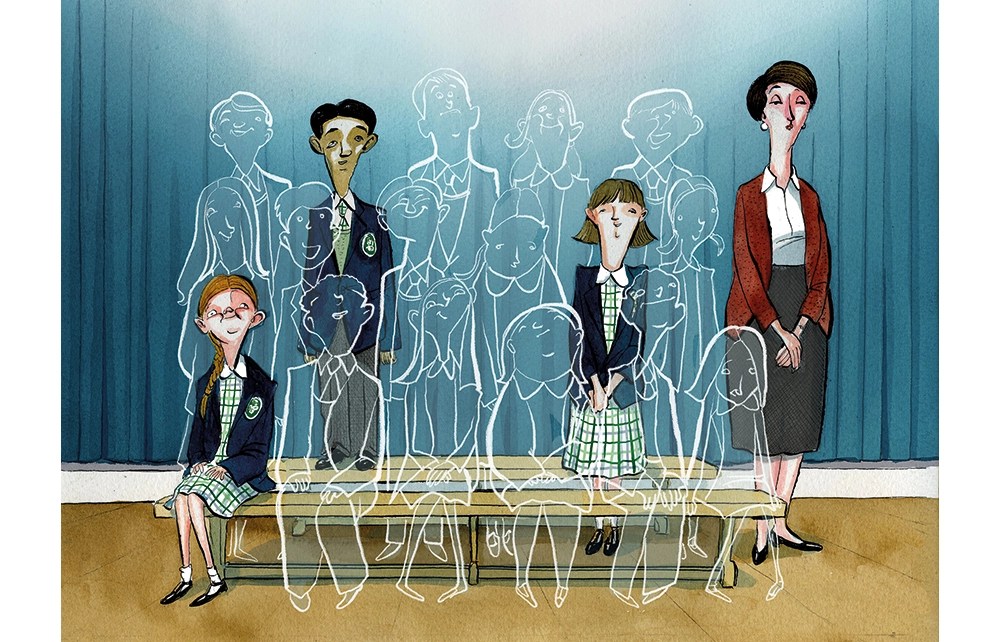Is school optional nowadays? In summer 2022, 140,000 children were classed as ‘severely absent’ from the classroom, a rise of 134 per cent on before the pandemic. Some 1.5 million pupils – one in five children – are ‘persistently absent’, which means they miss more than 10 per cent of lessons. The problem is getting worse: for secondary students, absence rates in the first half of the 2023 autumn term were higher than in the same period a year before.
Education Secretary Gillian Keegan has vowed to make ‘tackling attendance’ her ‘number one priority’. Today, the government has announced £15 million of investment to expand its ‘attendance hubs’ programme to over 2,000 schools.
Yet this money will make little difference if we don’t explore the reasons children are missing school in the first place. Many politicians and policy researchers focus on the impact of lockdowns and the breakdown of the social contract between schools and parents. However, school absence is too complicated to have one single cause.
What about parents’ duties?
Illness is still the main cause of pupil absence in schools: this time last year health authorities were actively telling parents to keep their children at home if they were unwell. Weakened immune systems post-lockdowns and poor ventilation in schools do not help matters, but schools have always been a petri dish for bugs.
What has perhaps changed is our cultural attitudes towards illness. If we are feeling under the weather, adults – and children – can now seemingly ‘work from home’, and given that half of adults still work at least sometimes remotely, having an unwell child is no longer the childcare crisis it once was.
Unauthorised absences are where it gets more complicated. Poverty plays a part: last year, almost 40 per cent of disadvantaged pupils were persistently absent, whilst pupils with free school meals are three times more likely to be severely absent than their more affluent peers. Absence rates in pupils with special educational needs are also disproportionately high. There is also an age factor: absence is less of a problem in Year 7, when students start secondary school, but there is a striking increase in Year 8, which then gradually continues until a peak in Year 11, where one in 20 GCSE pupils miss more than half of their classes.
There is also a mental health crisis in schools. A survey by the charity Mind found that nearly seven in ten pupils reported being absent from school due to anxiety and stress. This is a sensitive one for schools to navigate: crackdowns on non-attendance risk hurting families whose children genuinely struggle to cope, but there is also a risk that we over-medicalise and over-analyse normal childhood worries. The boundaries between being anxious and having anxiety are becoming ever-increasingly blurred, and many parents may inadvertently worsen their child’s anxiety by keeping them in the safe cocoon of home.
There is also a seismic change in parental attitudes. A record 350,000 parents in England were fined for taking their children out of school on authorised holidays last year. This is partly a result of the cost-of-living crisis, and parents wanting to take advantage of cheaper off-peak deals, but it is also symptomatic of this wider acceptance that attendance at school is somehow optional. The Instagram parenting influencer Molly Gunn recently confessed to letting her children have birthdays and ‘school of life’ days off, and while her family’s six-week sabbatical to Ibiza may seem an extreme example, I know plenty of teachers who receive regular emails from parents who are all too willing to let their child dictate their attendance rather than the other way around.
What worries me is that this crackdown on school absences will once again put the emphasis on schools to do more and more. Schools are already coming up with increasingly inventive ways to boost attendance: employing ‘emotionally based school avoidance’ counsellors; authorising part-time timetables to help students overcome anxiety; providing additional meals such as breakfast clubs; increasing sports provision (although anyone who has ever had to supervise school sports days knows that they often make attendance worse rather than better). Gillian Keegan even suggested that headteachers had a ‘duty’ to ‘pick up absent pupils from home’.
But what about parents’ duties? The crisis of school attendance cannot be fixed by the schools alone. Parents need to judge what is best for their children, but surely missing school regularly can’t be it.
An earlier version of this article referred to the school absence figures as ‘last year’s’. In fact, these figures came from 2022. The number of ‘persistently absent’ pupils is around 1.5 million, or one in five, rather than just over two million, as the article initially suggested






Comments